Five women on the front lines of COVID response
Date:
Originally published on Medium.com/@UN_Women
We need to practice gratitude now more than ever as we face drastic life adjustments with #COVID19. Who are you grateful for in these challenging times? pic.twitter.com/amrc7mA15C
— UN Women (@UN_Women) March 23, 2020
As the COVID-19 crisis unfolds, the lives of women and girls everywhere are changing.
While some spheres of work and personal life are on pause, others face increased strains and new challenges.
Millions of women worldwide are part of the essential workforce on the front lines of COVID-19.
Globally, women make up the majority of workers in the health and social sector.
Nearly one in three women work in agriculture, and women do three times as much unpaid care work at home as men.
From farming to first-response services and everything in between, women are playing an outsized role in keeping their communities safe and resilient in the face of COVID-19.
On World Day for Safety and Health at Work, here are the stories of just five women on the front lines. Join UN Women in thanking them for their service.
Keeping women safe with innovative technologies in Jordan
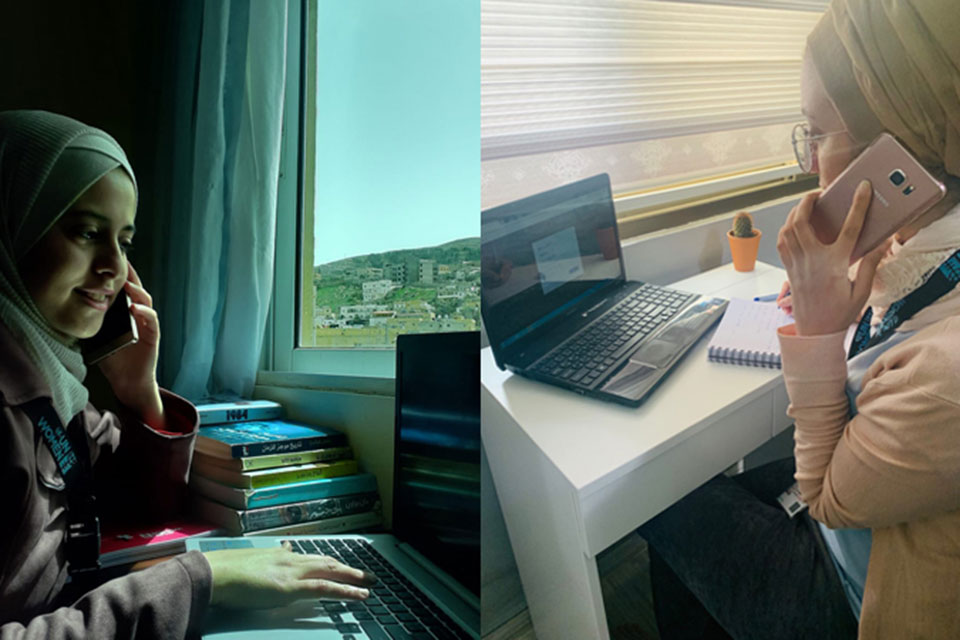
Amal Al Mahayrah and Hadeel Dabaibeh are familiar with crisis response. As UN Women Field Assistants in Jordan, they provide urgent and life-saving services for vulnerable Jordanian women and Syrian refugees every day. However, the coronavirus pandemic has brought the front lines much closer to home: from the caravans and community centers to the mobile phones in their palms.
Seated at her desk, Amal calls Siham Alqatameen, a 54-year-old woman living in Ein Albaida, south of Jordan. Over the phone, Amals infoms Siham of available counseling and psychosocial support and gives her reliable information on COVID-19 prevention and services.
Siham is one of more than 800 beneficiaries that UN Women field staff have proactively reached out to daily since the outbreak began, providing services and resources via mobile phones.
Digital technologies have been an essential tool for seamlessly maintaining services for vulnerable women and refugees in Jordan during the outbreak; A 24-hour hotline is also available for women experiencing gender-based violence, and UN Women is using its innovative blockchain cash-disbursement system to continue delivering funds toSyrian refugees. Each refugee’s account is linked to the blockchain, which is connected to an iris-scanning system in supermarkets run by the World Food Programme, so refugees can access the money without interruption and safely purchase food and essential supplies while in lockdown.
Stepping up for public service in rural China
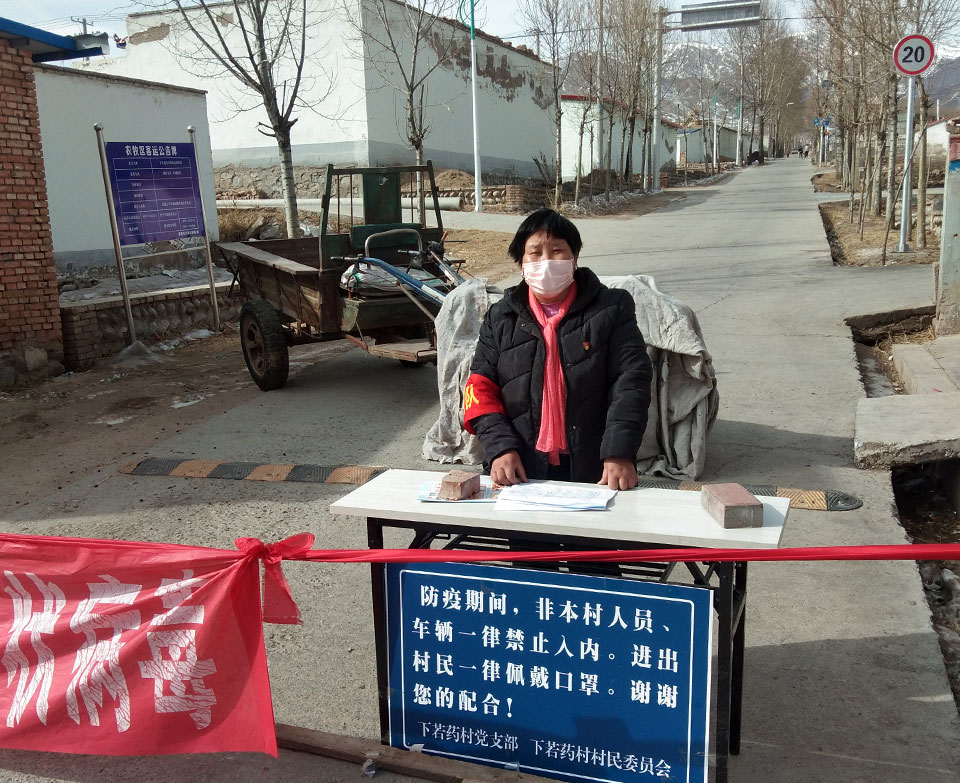
Yan Shenglian stands proudly behind the checkpoint in her rural village of Xiaruoyao, in China’s northwestern Qinghai Province. As people come and go from the village, Yan checks their body temperature and records their vehicle information. Her duties are essential to reducing the spread of the new coronavirus, but the tasks are new to her; she’s one of many women without a medical background who have joined the fight against COVID-19 in China.
Yan is a pig farmer by trade, and it wasn’t long ago that she, like many women in her village, thought taking part in public affairs was a man’s job. After participating in a series of skills training sessions in 2019, her perspective changed.
As part of the UN Women-supported programme, Yan learned how to raise pigs organically, discovered how to sell her livestock on online platforms, and received leadership training.
“Although some men do not want to admit it, they are silently imitating and learning my methods,” she says. Her abilities are no longer questioned, she says, and her village has become more accepting of women’s leadership in community initiatives.
In both her roles as a farmer and as a community volunteer, Yan is contributing critical services and is stepping up to stop the spread of COVID-19.
Click here to learn more about rural women farmers joining the fight against COVID-19 in China.
Leading coronavirus testing efforts in Nepal
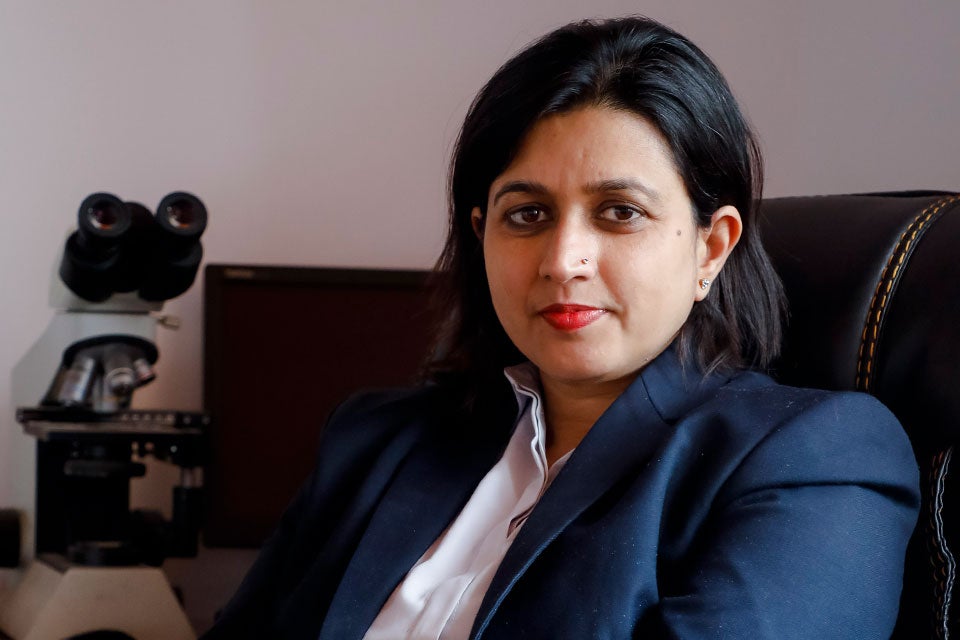
Dr. Runa Jha is Chief Pathologist and Director of the only laboratory authorized to conduct COVID-19 testing in Nepal. She and her team are testing roughly 70 samples a day, which arrive at irregular intervals and make for around-the-clock work.
“Staying late at the lab has become the norm. In addition to the technical work, I also have to manage logistics, such as arranging transportation and food for my team,” she says.
Taking care of her team is high priority for Jha; it all begin in mid-February when her group was the first to enter a quarantine facility housing 175 Nepali students brought home from Wuhan, China.
“My team did not hesitate to volunteer to take samples… all of them were ready. We worked the whole night and produced 175 reports the following day,” she shares.
Months into the pandemic, the intense work continues. Jha does her best to support the workers and boost morale. “It is a very difficult time for us, and I have to keep them motivated. I talk to them whenever I sense they are feeling down. I tell them their safety is our priority,” she says.
The demands of the job have been challenging for Jha too. She’s living alone, separated from her daughter and husband, because she fears risking their lives with infection. She can’t visit her parents either, who she used to see three times a week.
“I want to hug my daughter and take care of my parents, but this sacrifice needs to be made to keep them and others safe,” Jha says.
Click here to read more about Jha’s leadership on the frontlines of the COVID-19 response in Nepal.
Supporting survivors in Kazakhstan
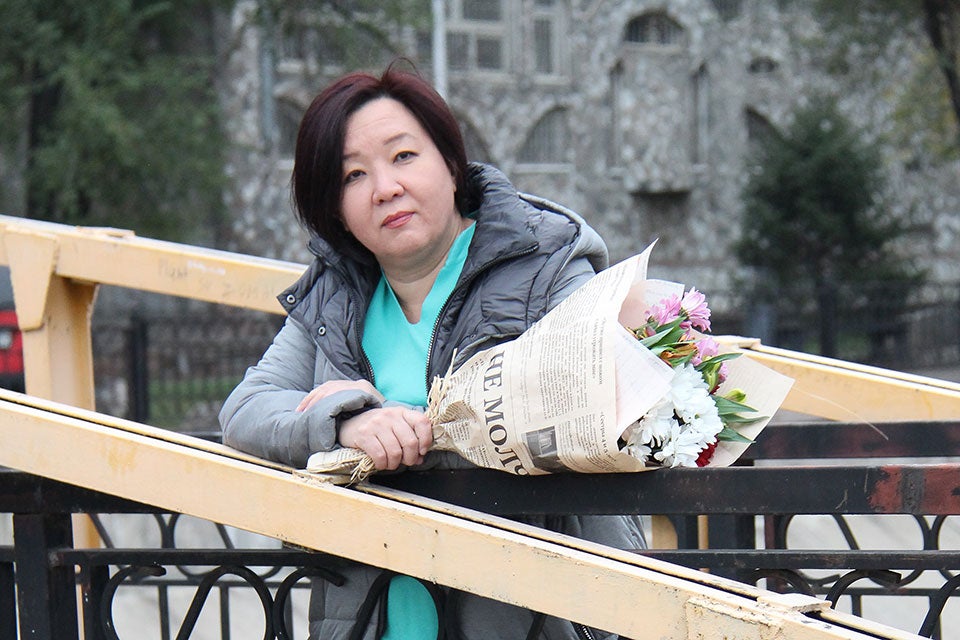
Before quarantine, the helpline operated by the NeMolchi (Don’t Keep Silent) movement in Kazakhstan received calls mainly from survivors of sexual violence. Now, the phone rings 10 to 15 times a day, and almost all the calls are from women who were suffering from domestic violence.
Due to the containment measures in place to reduce the spread of the virus, women with violent partners increasingly find themselves isolated from the people and resources that can help.
“Women are not willing to report to the police because they are living in isolation, and sometimes in large families, with their husband’s parents and other relatives in one house,” says Dina Smailova, leader of the NeMolchi movement and well-known Kazakhstani activist.
In the past two year, NeMolchi has provided free legal support to 120 women, with 47 cases resulting in rape convictions, but the COVID-19 crisis poses new challenges that worry Dina. “During quarantine, the courts do not work, claims are not accepted, abusers are not isolated, and women have to continue living with their abusers,” she explains.
Despite the dire circumstances, Dina continues to push for justice and policies that better protect women; “The fact that domestic violence is not a criminal offence in Kazakhstan is hurting women during COVID-19 crisis. If, for example, violation of a protection order by the aggressor immediately becomes a criminal offence with a longer sentence, I think that would make a difference,” she says.
For more on how Dina is standing with survivors during the coronavirus pandemic, read her full interview.
Maintaining hope for her Caribbean community
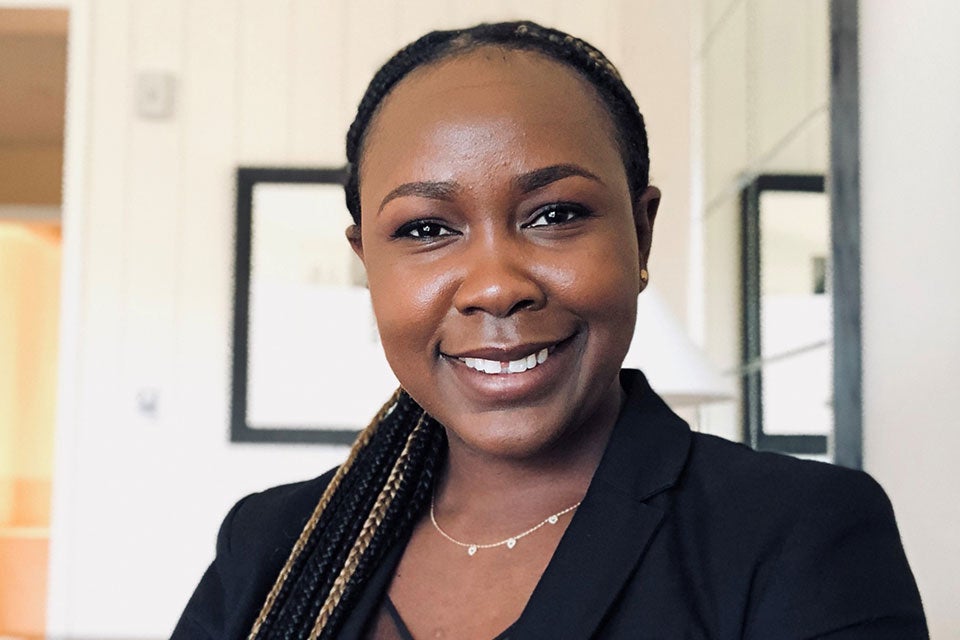
When the California hotel where Ryancia Henry worked as Director of Housekeeping closed because of the COVID-19 outbreak, she called her mom in Antigua and Barbuda. “Get here (home) now,” her mom said, almost in tears. “I want you to be safe.”
But returning to Ryancia’s home country proved to be impossible as international flights to the island were suspended, so she remained alone in the United States.
Ryancia is among millions of workers currently out of work and contemplating how the long-term impacts of the crisis will affect her, her staff, her family and her friends. Like many migrant workers, she carries the extra responsibility of financially supporting her family back home.
“The financial impact on hospitality alone has just been so staggering… I worry for myself depending on how long this goes on, what kind of decisions do I have to make, to be financially okay, and I have the same concerns for my team. I send some funds home, to help my mom. I worry about maintaining some payments,” Ryancia shares.
And her concerns don’t stop there. She’s also worried about her island. “I am fearful for smaller countries that have limited resources during COVID-19. Antigua depends on tourism as the main industry and by closing hotels and airports, basically our main industry has come to a halt,” she says.
However, as she practices physical distancing and stays home to stop the spread of the virus, Ryancia remains hopeful. She checks in with family, shares helpful messages on social media, and exchanges best practices with her friends and contacts in the hospitality industry in Antigua and Barbuda.
“I know how resilient island people are. Being born on an island, hospitality and resilience are in my foundation.”
For more on how the pandemic is affecting women in the tourism and hospitality industry and migrant workers, read Ryancia’s full interview.